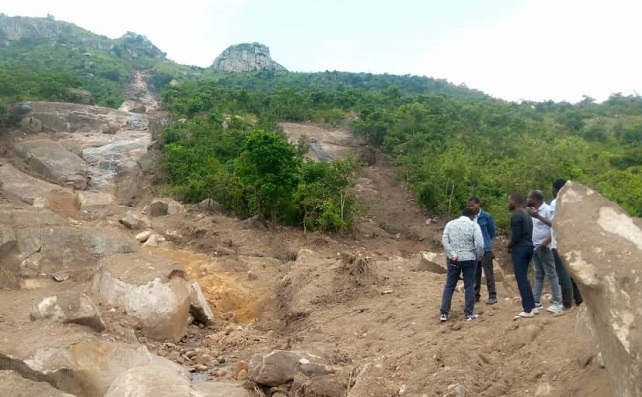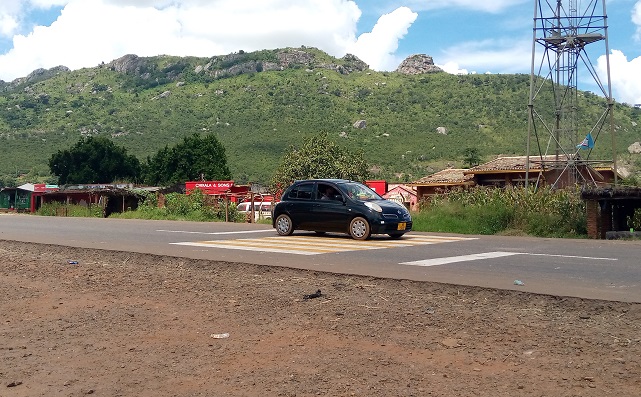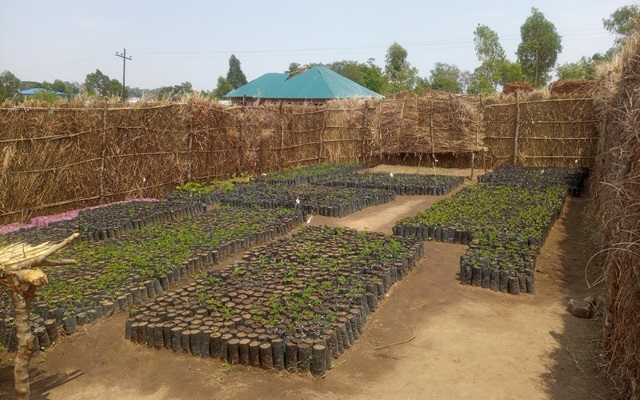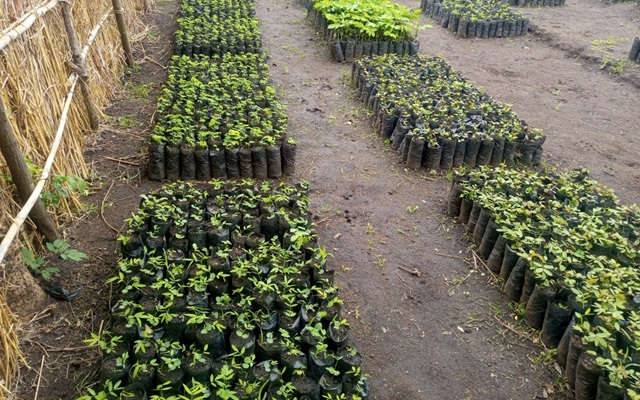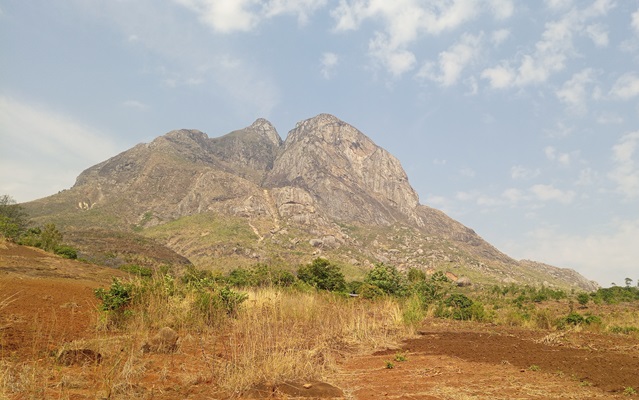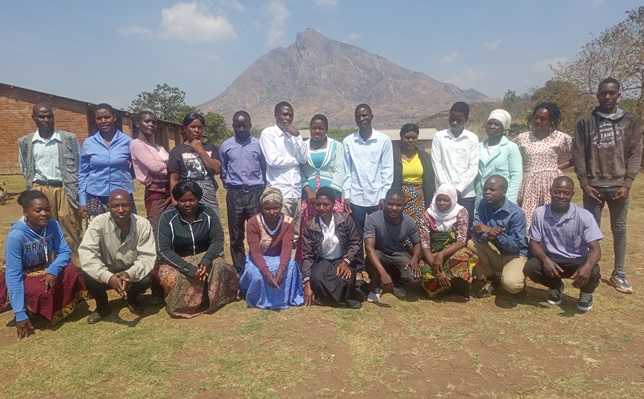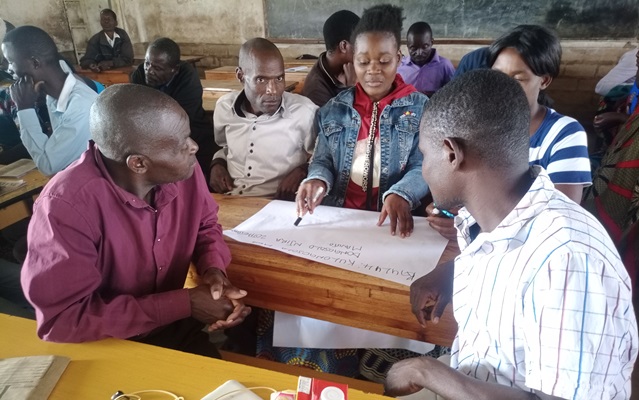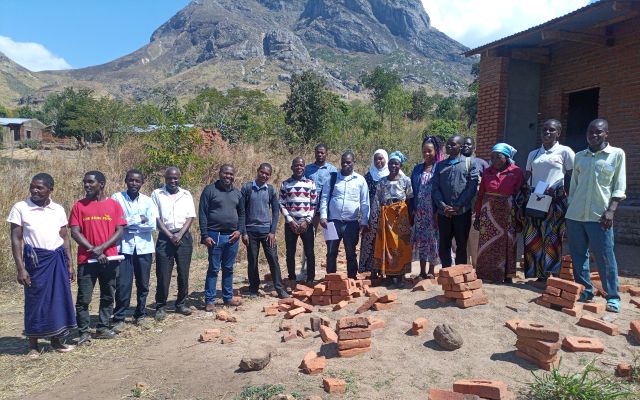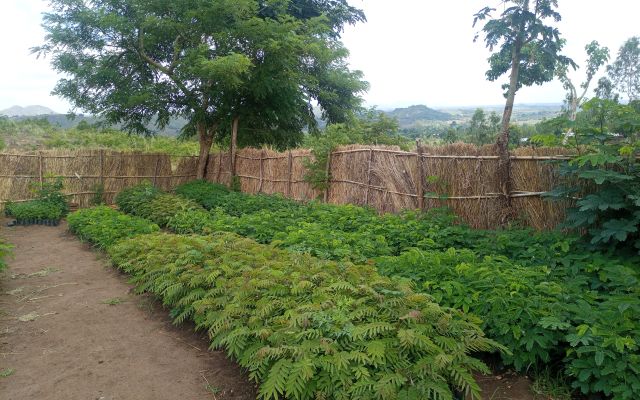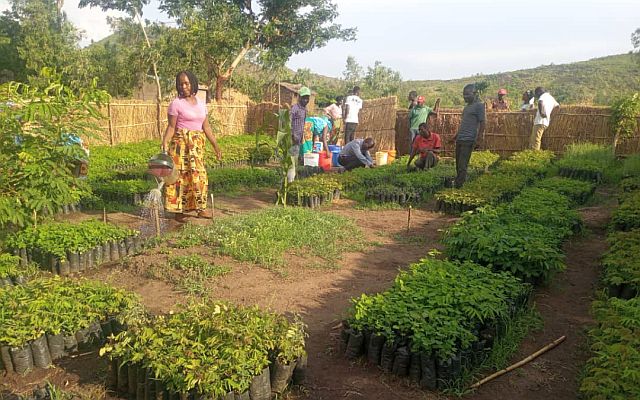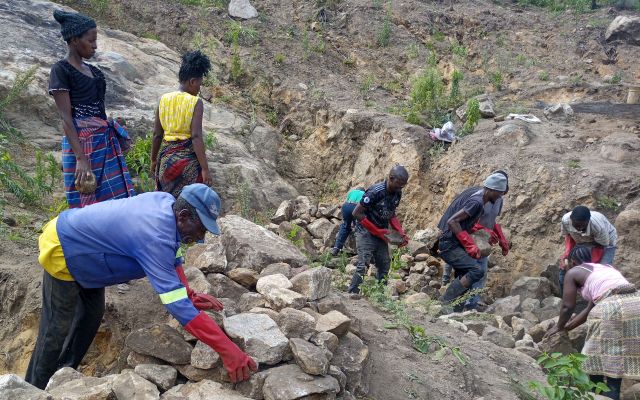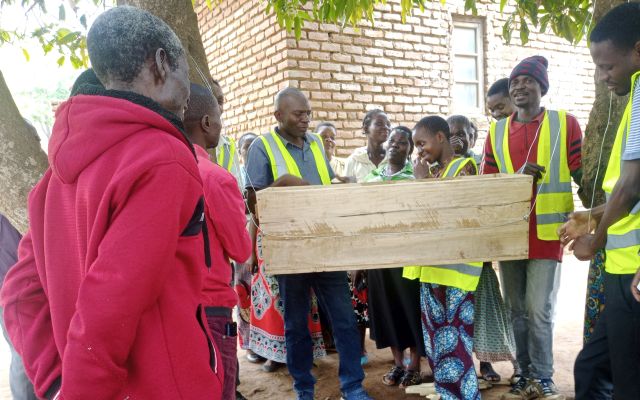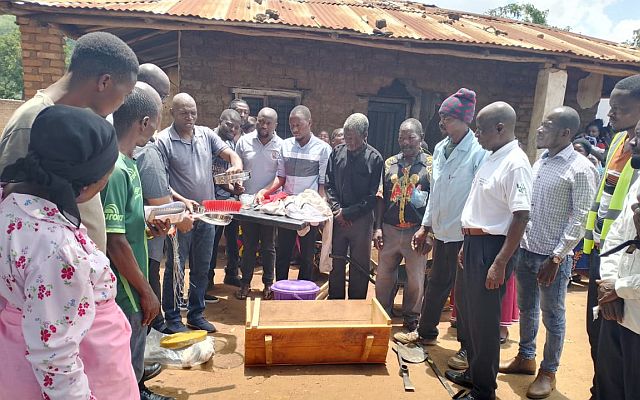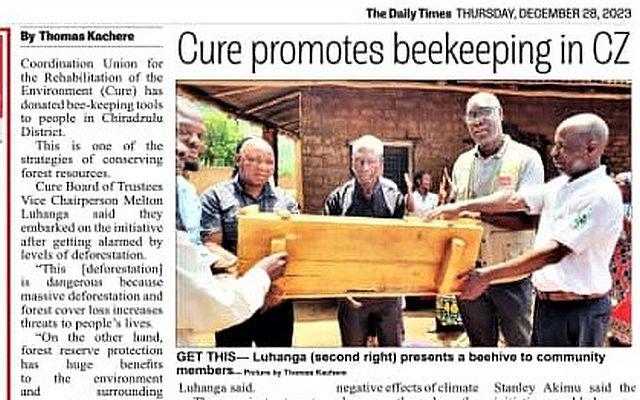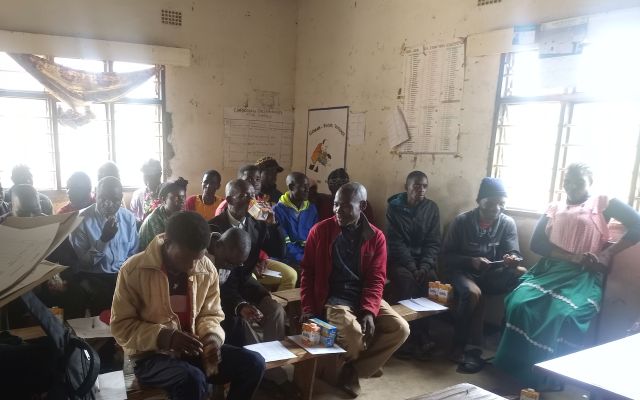Restoration of Chiradzulo Forest Reserve while building resilience of local communities against climate change
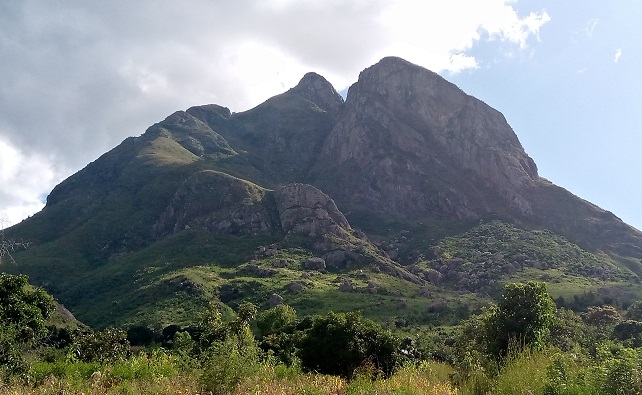
The surroundings of the Chiradzulo Mountain Forest Reserve in the southern region of Malawi are densely populated, with more than two thirds of its population classified as poor. As a result of population pressure, high poverty levels, weak border community participation, and weak law enforcement, the forest reserve has been degraded losing its forest cover by 56 per cent from 950 to 441 hectares.
This IKI Small Grants project aims to restore and protect the Chiradzulo Forest Reserve. About 400 hectares of the forest are restored by 2025. To achieve this, the project strengthens the capacity of border communities by setting up Natural Resource Management Committees and training them in forest management and forest-based enterprises. Furthermore, the root causes for forest degradation are tackled, by providing communities with alternative livelihoods such as honey production, agroforestry, and eco-tourism.
INITIAL SITUATION
Chiradzulo Mountain Forest Reserve is approximately 1,150 hectares large and located in the southern region of Malawi. The forest reserve is state-owned and was declared a forest reserve in 1924. It is surrounded by dense populations of whom more than two thirds are classified as poor.
The forest reserve has suffered massive deforestation and forest degradation, resulting in loss of forest cover by 56 per cent between 1960 and 2010, especially in the eastern and southern parts. The western part is fairly protected due to engaged communities, taking care of the forest. The major causes for forest degradation are illegal harvesting of trees for both domestic and commercial firewood requirements, and cultivation of crops.
Currently, the forest reserve has only two forest guard personnel against the required 30. This has led to drying up of streams and frequent dry spells that destroy crops, exposure of big rocks that endanger human lives, and scarcity of wild foods that provide food.
TARGET GROUP
The project targets border communities with 2,500 households in a five-kilometre radius from the forest reserve boundary. It targets different communities in the western and in the eastern part, out of which 400 are female-headed households. Some of the communities have been successfully managing and protecting 100 hectares of the forest for nine years, but their livelihood improvement has not been sufficiently addressed so far.
The communities learn how to manage the forest, relying on natural regeneration and replanting of degraded areas.
APPROACH AND ACTIVITIES
This IKI Small Grants project contributes to the restoration of the Chiradzulo Forest Reserve. The objective is to restore 400 hectares by 2025. Out of 400 hectares, 50 hectares are re-afforested, while 350 hectares are managed through natural regeneration.
The project supports border communities by creating and strengthening community structures such as Village Natural Resource Management Committees. It trains the committees in forest management and formulating forest management plans. Furthermore, it provides materials and trainings to improve the economic situation, such as beekeeping and marketing of honey products. Since the Chiradzulo Forest Reserve is close to Blantyre City, eco-tourism further promotes income. Income generating activities help to reduce causes of illegal logging. To scale up the experiences within Chiradzulo Forest Reserve, exchange visits between the border communities promote effective forest restoration practices.
LATEST PROJECT HIGHLIGHTS AND IMPACTS
- Stakeholder engagement achieved with 400 beneficiaries in tree nursery management and local government decision makers
- 2 tree nurseries established and 20.000 tree seedlings raised
- All 5 Village Natural Resources Management Committees formed and trained
- 4 natural resource-based enterprises established
- 2 Cyclone Freddy-induced gullies rehabilitated
- Local government structures strengthened in skills to mobilise the wider community
CAPACITY DEVELOPMENT
IKI Small Grants supports CURE in their organisational capacity development through:
- GIS application trainings
- Resource mobilization trainings and
- Monitoring, Evaluation and Learning trainings.
ABOUT THE ORGANISATION
Coordination Union for the Rehabilitation of the Environment (CURE) was founded in 1994. It is a non-governmental organization which enhances effective management of Malawi’s environment and natural resources in a participatory and sustainable manner through coordination, communication, capacity building, and advocacy in environment and natural resource management. It coordinates NGOs involved in environment natural resource protection and management in Malawi.

